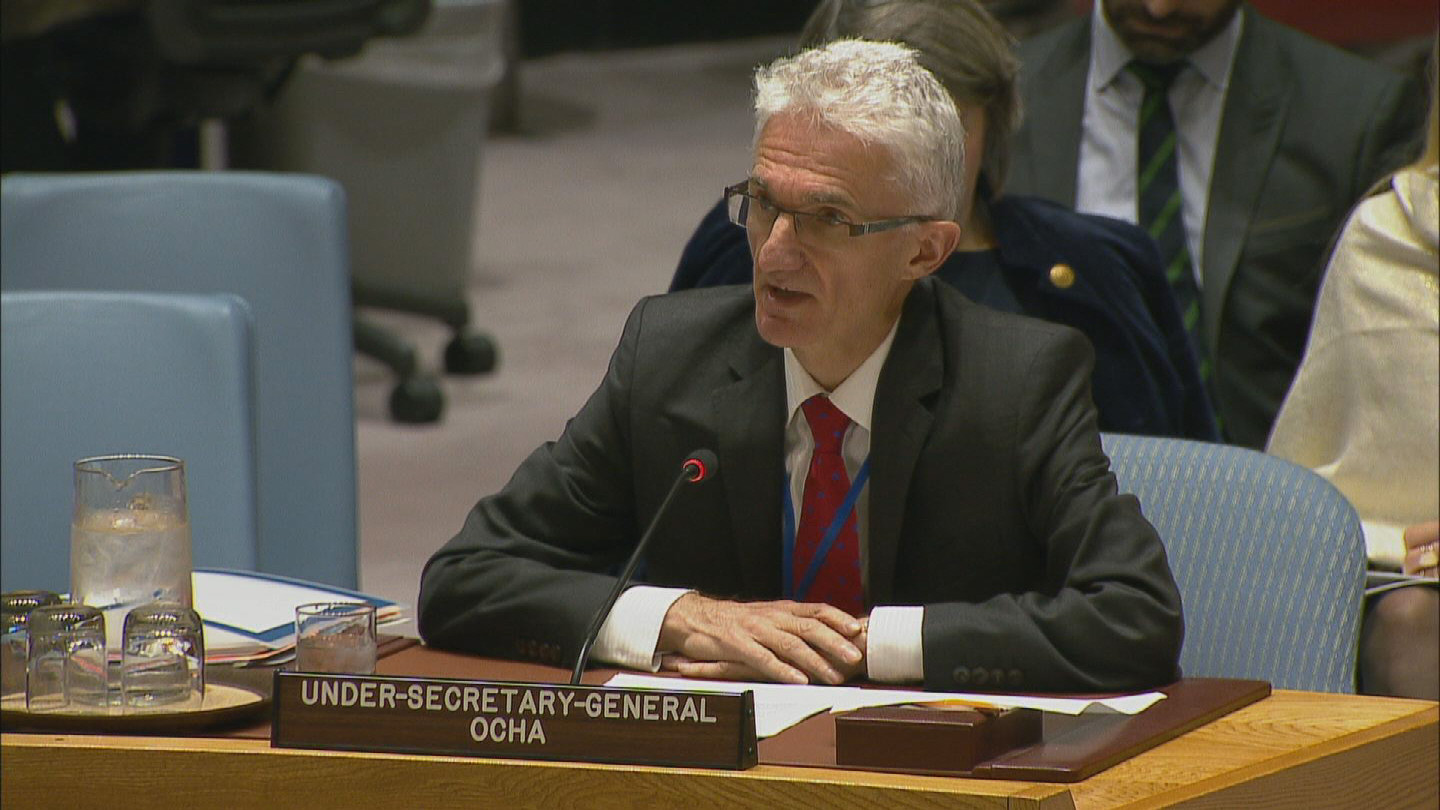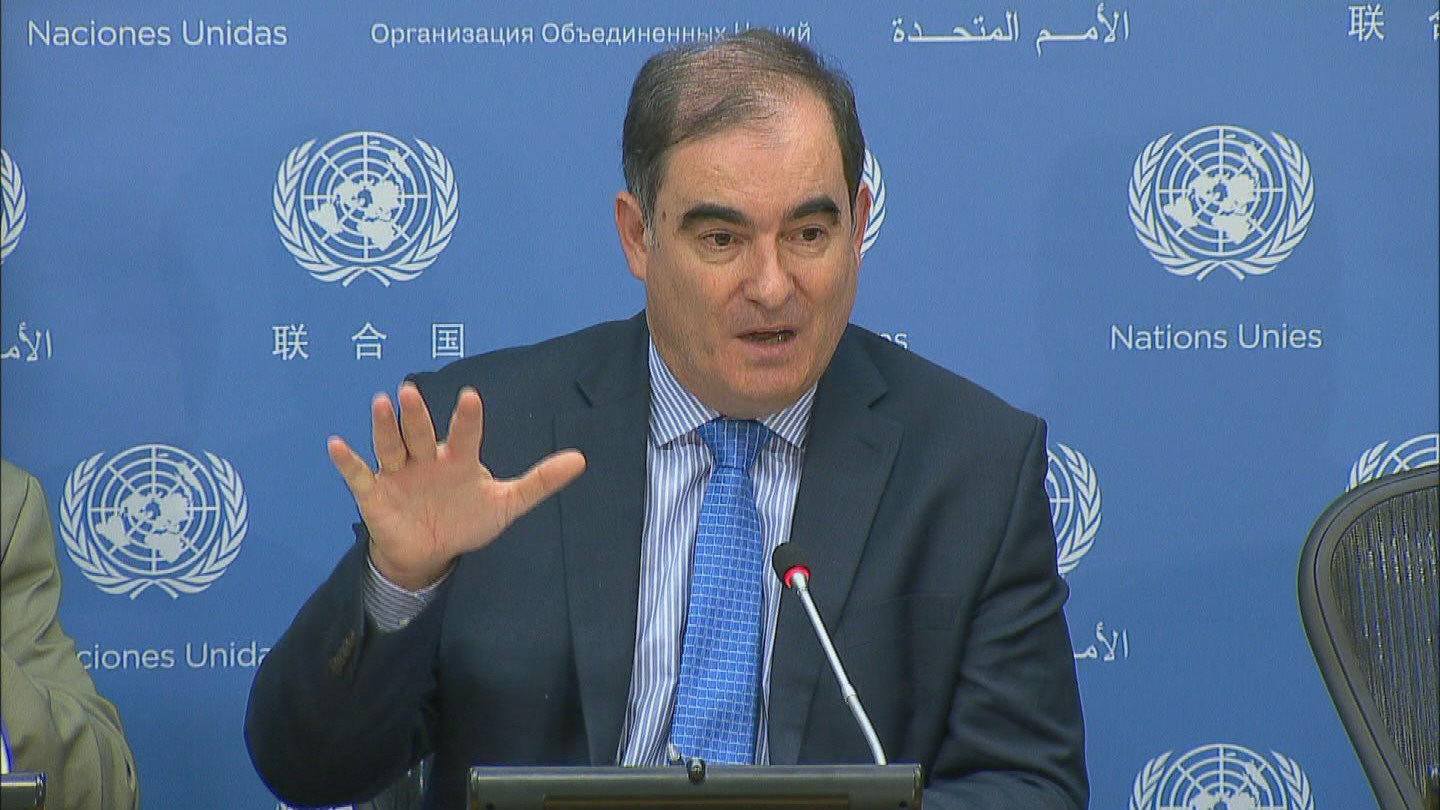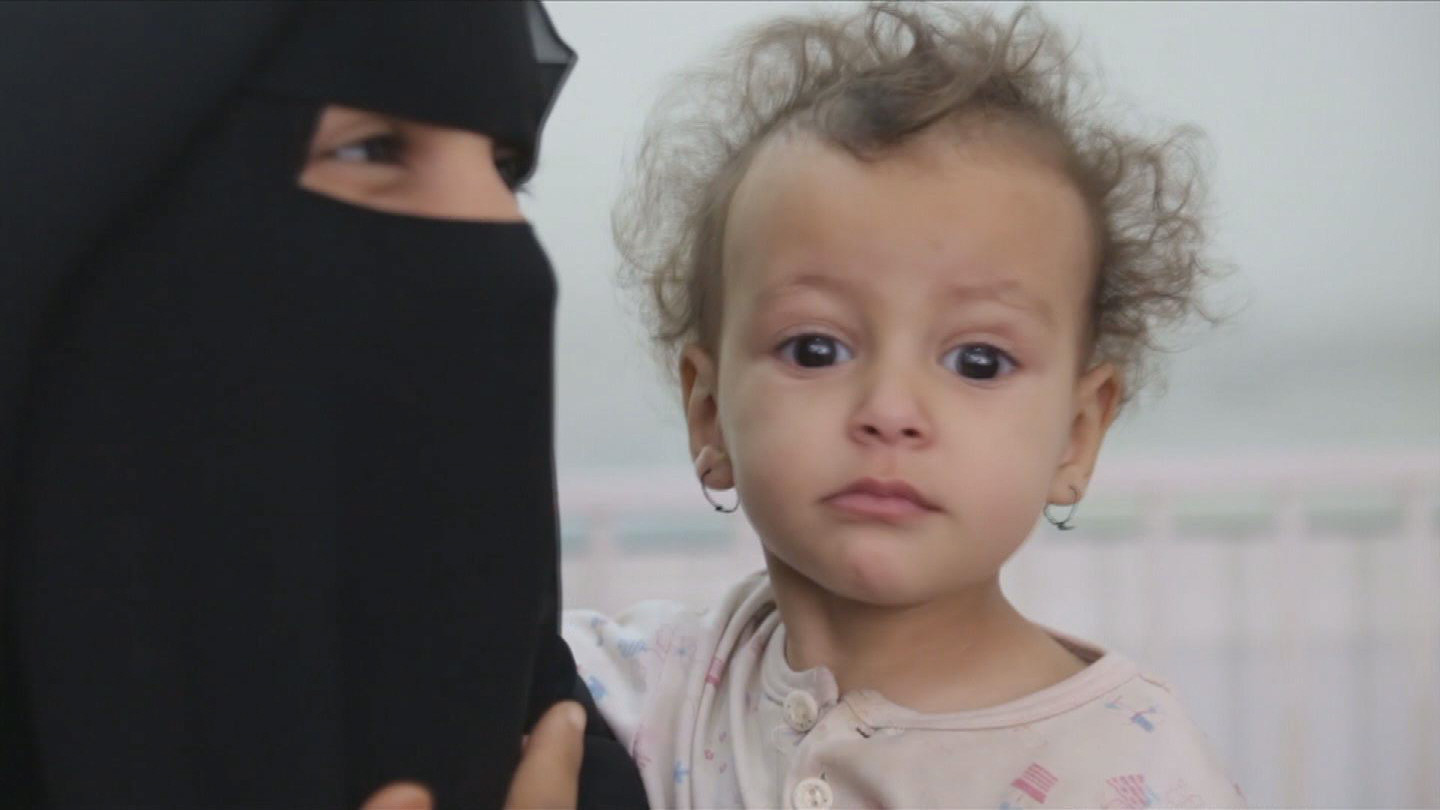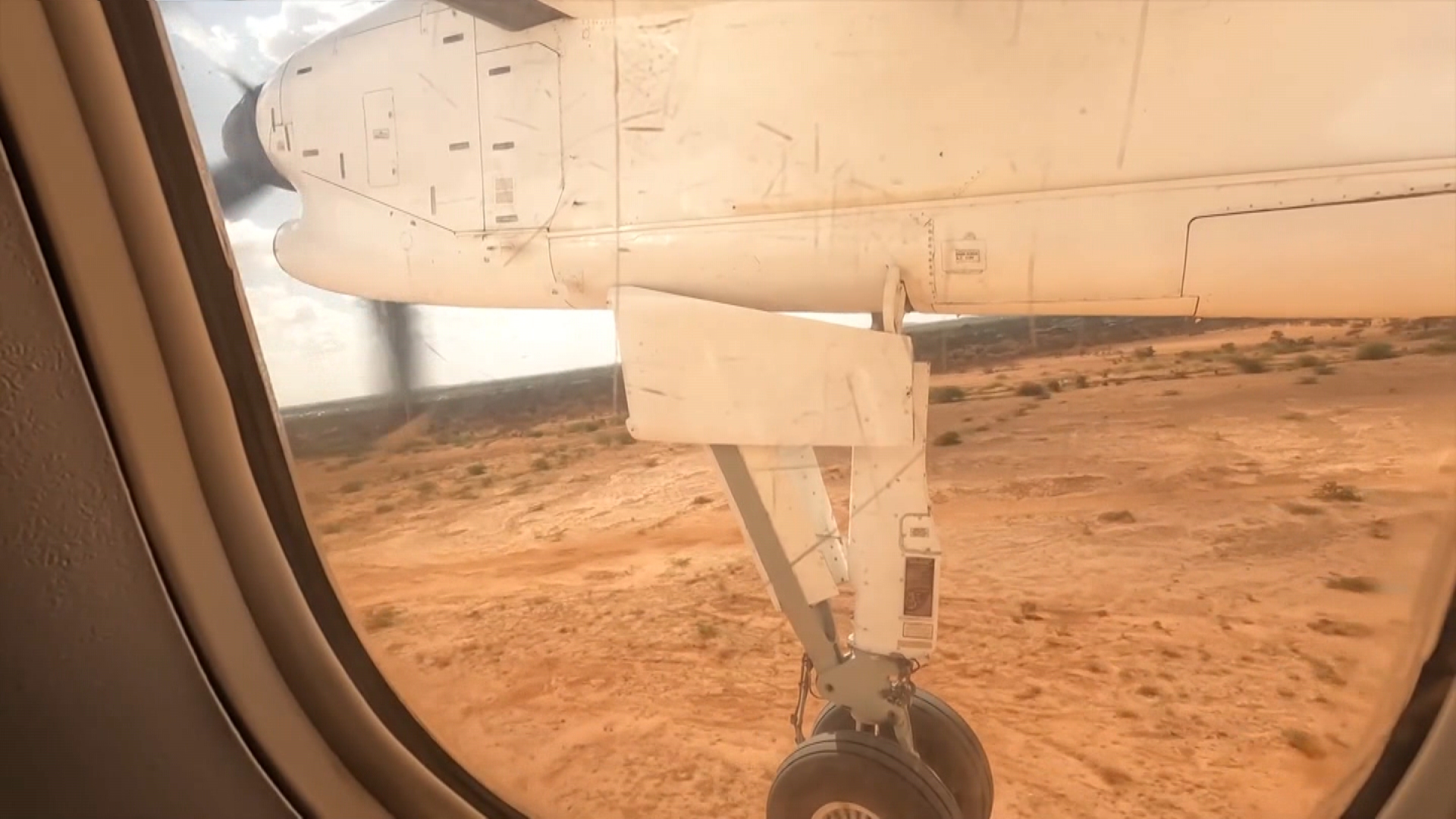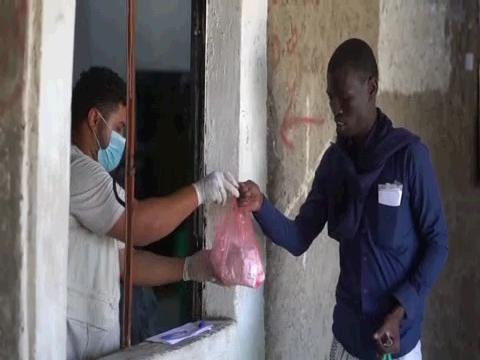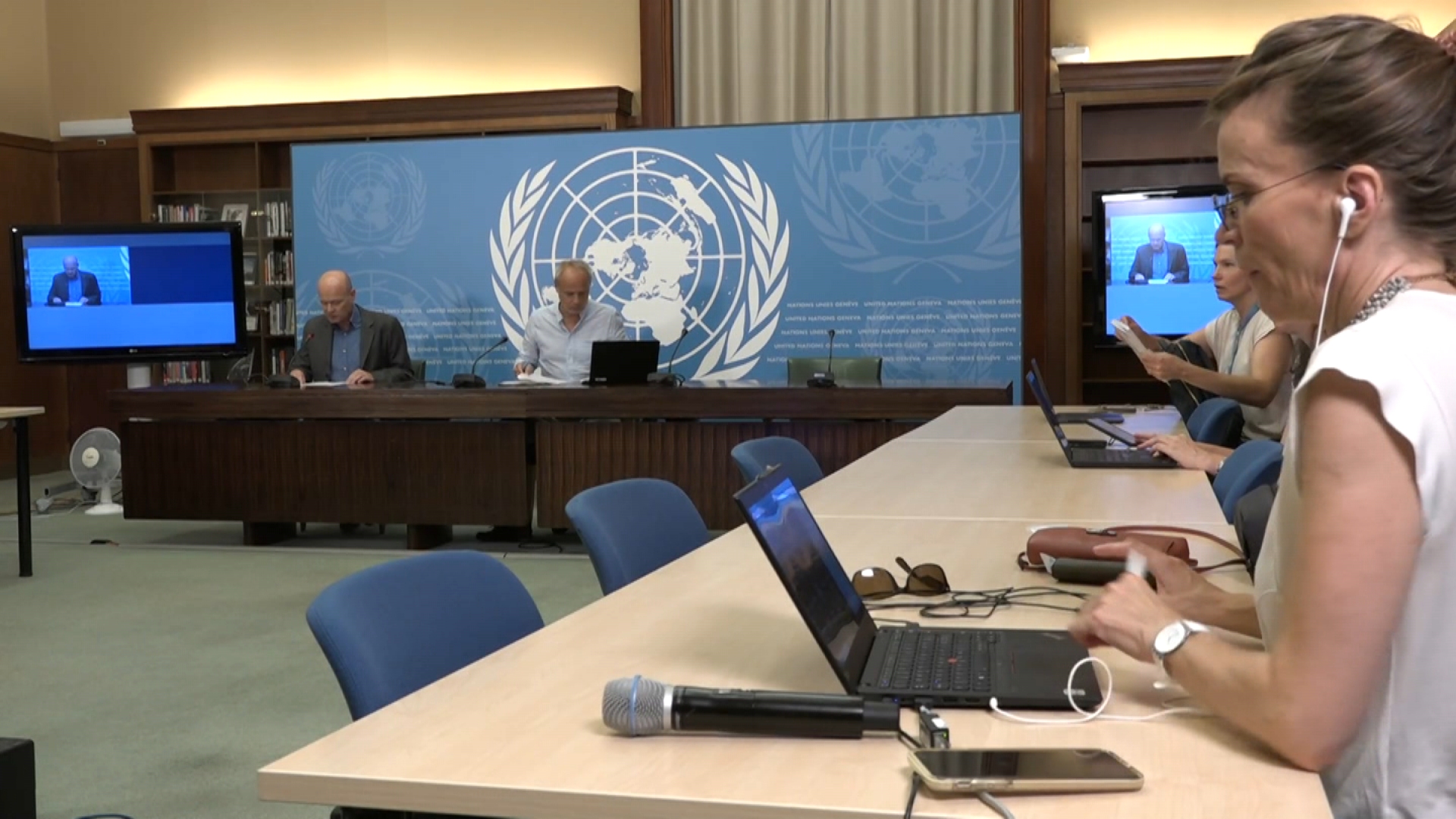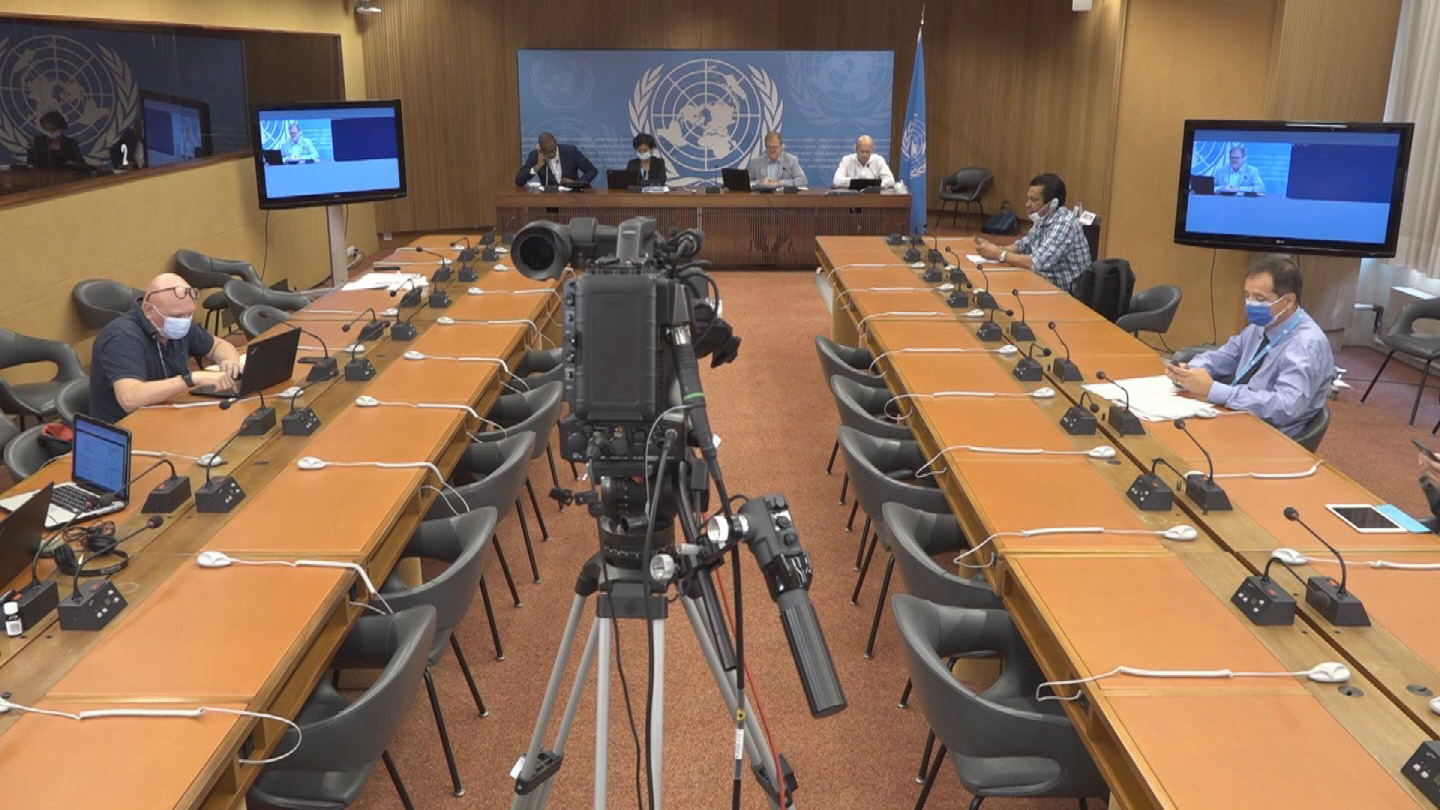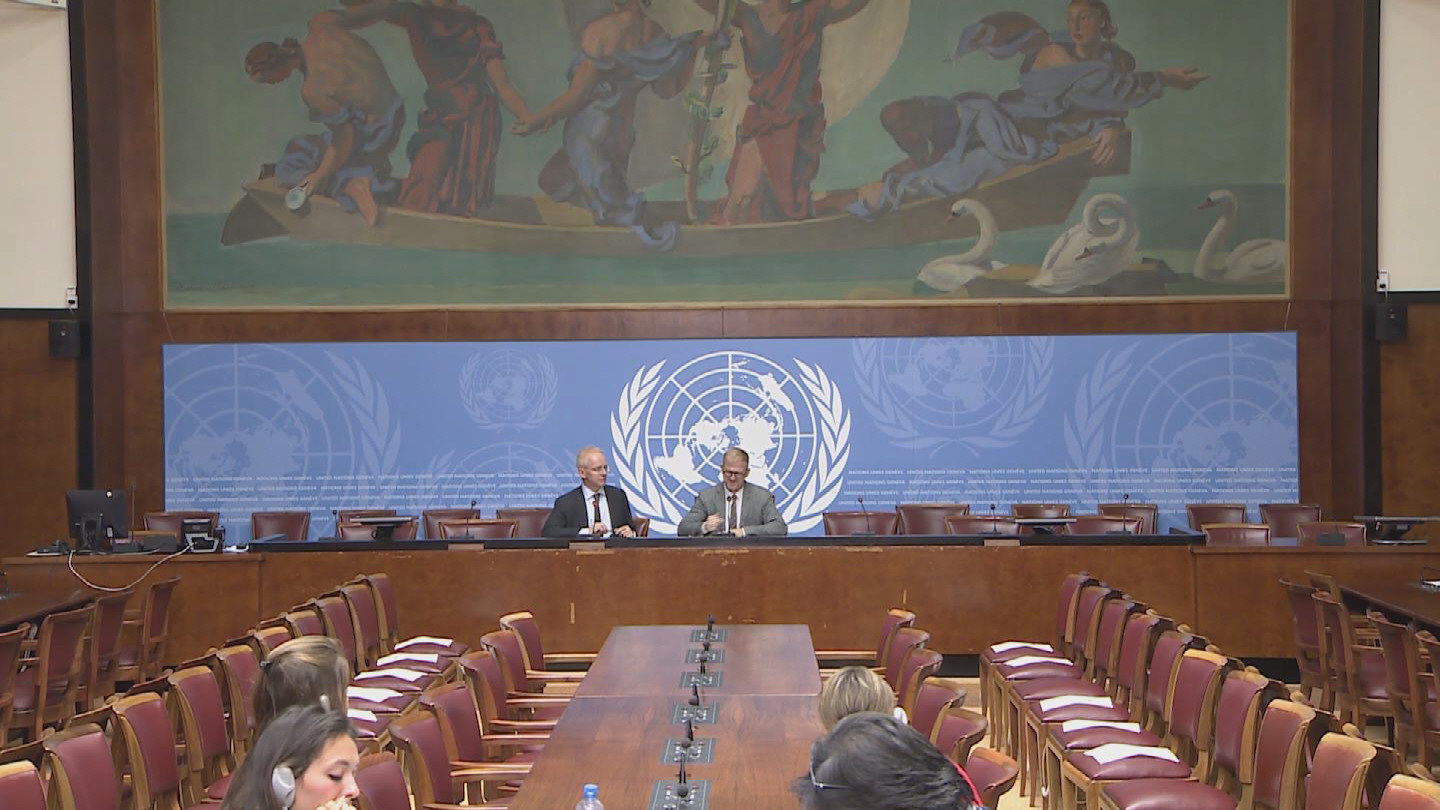GENEVA / MASS STARVATION RISK
Download
There is no media available to download.
Share
STORY: GENEVA / MASS STARVATION RISK
TRT: 3:07
SOURCE: UNTV CH
RESTRICTIONS: NONE
LANGUAGE: ENGLISH / NATS
DATELINE: 11 APRIL 2017 GENEVA, SWITZERLAND
1. Wide shot, exterior, Palais des Nations
2. Close up, microphone
3. SOUNDBITE (English) Adrian Edwards, Spokesperson for the UN Refugee Agency:
“We are raising our alarm level further by today warning that the risk of mass deaths from starvation among populations in the Horn of Africa, Yemen and Nigeria is growing. This morning is in light of the drought situations that we have been hearing about are also affecting many neighboring countries and a funding shortfall that is becoming so severe”.
4. Wide shot, journalists
5. SOUNDBITE (English) Adrian Edwards, Spokesperson for the UN Refugee Agency:
”In all, some 20 million people are in areas affected by drought, 4.2 million of them are refugees. Consecutive harvests have failed, conflict in South Sudan coupled with drought is leading to famine and outflows of refugees, insecurity in Somalia is leading to rising internal displacement and rates of malnutrition are high, especially among children and lactating mothers”.
6. Cutaway, journalists
7. SOUNDBITE (English) Adrian Edwards, Spokesperson for the UN Refugee Agency:
”In Djibouti rations have been cut by 12 per cent, in Ethiopia, Tanzania and Rwanda by between 20 and 50 per cent, and in Uganda by up to 75 per cent. Many refugees are without full access to livelihoods and agriculture or food production possibilities”.
8. Med shot, journalists
9. SOUNDBITE (English) Adrian Edwards, Spokesperson for the UN Refugee Agency:
”UNHCR reminds the international community that the Horn of Africa drought of 2011 cost more than 260,000 lives, more than half of these children aged below five. A repeat must be avoided at all costs”.
10. Cutaway, journalists
11. SOUNDBITE (English) Jens Laerke, Spokesperson for the UN Office for the Coordination of Humanitarian Affairs:
“What we call ‘the special call for funding’ for the four countries where we either have famine conditions in South Sudan, or we are at the brink of famine, Nigeria, South Sudan, Somalia and Yemen, you will recall by the end of March the Secretary General urged the international donor community to provide 4, 4 billion US Dollars to that. We have the update as of today that we have received a total of 984 million against the 4.4 billion. So we are at 21 per cent. Of course, the efforts to raise more funds continue”.
12. Close up, journalist
13. SOUNDBITE (English) Jens Laerke, Spokesperson for the UN Office for the Coordination of Humanitarian Affairs:
“What is particular in north-eastern Nigeria is that where we a year ago had almost zero access, extremely limited access, now that access is opening up. That is one of the reasons why the numbers have grown because as we had pushed into these areas we have simply discovered more and more need of an extreme nature, including extreme food insecurity, so that there is a risk of famine”.
14. Wide shot, journalists
The UN Refugee Agency (UNHCR) warned that the risk of mass starvation in northeast Nigeria, Somalia, South Sudan and Yemen is growing fast due to drought and conflict.
Adrian Edwards, spokesperson for the UNHCR told reporters in Geneva today (11 Apr) “we are raising our alarm level further by today warning that the risk of mass deaths from starvation among populations in the Horn of Africa, Yemen and Nigeria is growing.”
Edwards said that the new warning had been issued this morning “in light of the drought situations that we have been hearing about [that] are also affecting many neighbouring countries, and a funding shortfall that is becoming so severe.”
The famine is leading to a rise in the displacement of people in all four countries with 4.2 million refugees among some 20 million in areas affected by drought.
Edwards said "consecutive harvests have failed. Conflict in South Sudan, coupled with drought, is leading to famine and outflows of refugees. Insecurity in Somalia is leading to rising internal displacement and rates of malnutrition are high, especially among children and lactating mothers.”
Children account for the majority of refugees. In the case of South Sudan they make up to 62 per cent of the refugee population, and they all depend on food assistance from the World Food Programme (WFP) that are becoming increasingly scarce.
Yemen is experiencing the world’s largest humanitarian crisis with almost 19 million people in need of humanitarian help, around 17 million people are defined as "food insecure" - meaning that they do not have consistent access to adequate food. In northern Nigeria, as many as seven million people are badly struggling with food insecurity.
Edwards said "UNHCR reminds the international community that the Horn of Africa drought of 2011 cost more than 260,000 lives, more than half of these children aged below five. A repeat must be avoided at all costs.”
Jens Laerke, a spokesperson for the UN Office for the Coordination of Humanitarian Affairs (OCHA), spoke to the issue of global funding for these emergencies, which appears to be falling dramatically short.
he said "what we call the special call for funding for the four countries-- where we either have famine conditions in South Sudan, or we are at the brink of famine: Nigeria, South Sudan, Somalia and Yemen -- you will recall by the end of March the Secretary-General urged the international donor community to provide 4, 4 billion US Dollars to that. We have the update: as of today that we have received a total of 984 million against the 4.4 billion.”
Laerke also pointed out that the funding is only one aspect of the problem -- the other one is that humanitarian agencies be given access to those who are in need of aid. In South Sudan, for example, where access has been hindered by fighting, humanitarian workers have been unable to feed people. In Yemen there have also been severe obstacles to humanitarian access.
OCHA’s Laerke said that “what is particular in north-eastern Nigeria is that where we a year ago had almost zero access, extremely limited access, now that access is opening up. That is one of the reasons why the numbers have grown because as we had pushed into these areas we have simply discovered more and more need of an extreme nature, including extreme food insecurity, so that there is a risk of famine”.
